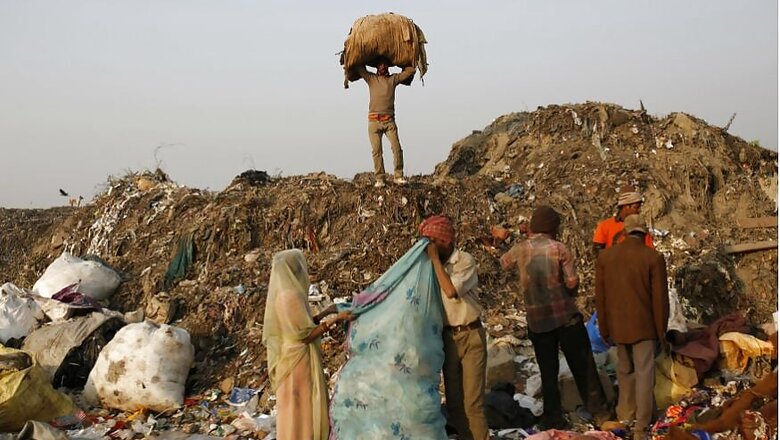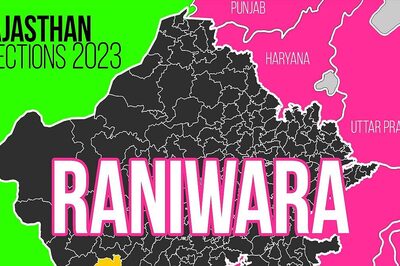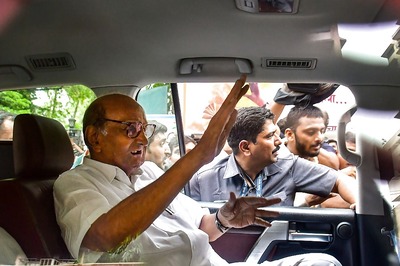
views
New Delhi: The need for resource efficiency, or simply, using India’s limited resources in a sustainable manner was on Thursday flagged by the Economic Survey, which also outlined a six-pronged strategy for a shift towards managing natural resources with “minimisation of waste in both consumption and production”.
The six-pronged strategy involves changes at the policy level, creation of programs and a regulatory mechanism, the setting up of a “dynamic recycling industry” along with growing R&D and technological interventions, and finally “capacity development, outreach and monitoring”.
As of 2019, India accounted for 7.2 per cent consumption of globally extracted raw materials, but its “rate of recycling is very low as compared to other developed economies”. Moreover, as per the NITI Aayog, India consumed 5 billion tonnes of biomass, fossil fuels, minerals and metals in 2010 and was the third largest consumer after China (21.5 billion tonnes) and US (6.1 billion tonnes), it said. Finally, NITI Aayog projected that India would “be requiring around 6.5 billion tonnes of minerals in order to sustain the demand of growing population” in the future.
The survey quoted estimates and said that “US$1 billion worth of gold can be extracted with mining of urban e-waste”, 14 lakh jobs could be created from e-waste management policies and “nearly US$2.7 billion opportunity can be created from the extraction of eight million tonnes of steel from the end of life vehicles.”
Apart from e-waste, it also flagged transport as a priority sector cited studies and said that the Indian auto industry consumes around 70-80 million tonnes of iron and steel but due to a “fragmented process of scrap collection, nearly 6-7 million tonnes per annum of steel scrap” are imported. Research, the survey said, would generate more than 10 million tonnes of steel scrap by 2025.
Policies
The survey suggested that a national policy be created on resource efficiency, a national policy on Sustainable Public Procurement (SPP) to minimise consumption of resources, reduce waste generation and GHG emissions while strengthening existing policies programmes of Ministry of Mines by incorporating. Formulate a national policy for End-of-Life Vehicles and Formulate a Waste to Resource Management Directive.
Programmes and Mainstreaming
It asked for the mainstreaming of resource efficiency activities by “leveraging existing flagship programmes and schemes” like Swachh Bharat Abhiyan, Smart Cities and that industry may leverage Corporate Social Responsibility (CSR), Corporate Environmental Responsibility (CER) and Extended Producer Responsibility (EPR) for initiatives. It suggested that the government build on National Chemical Management Plan being drafted by Ministry of Environment Forest and Climate Change (MoEF&CC).
Regulations
It suggested the establishment of a “national coordinating body- Bureau of Resource Efficiency (BRE) between various ministries to identify, implement and achieve national RE goals” and create similar state level bodies. It also suggested rationalising “tax regime on critical virgin raw materials to make secondary raw materials price competitive.”
Dynamic Recycling Industry
The survey suggested the “establishment of Material Recovery Facilities (MRFs) with the allocation of land in urban areas and industrial estates” and the facilitation of “Urban Local Bodies (ULBs) to undertake urban mining and create secure landfills”. It also suggested the establishment of the Producer Responsibility Organizations (PRO) for waste recycling and for engagement with the informal sector along with the establishment of “platforms for waste exchange by expanding the SBM portal”.
R&D and Technology Development
It asked for supporting R&D to create scalable technologies and creating knowledge platforms that provide a space for open innovation and engagement with experts.
Capacity Development, Outreach & Monitoring
It asked for the “creation of accredited laboratories that could conduct testing (especially for recycled products) as well as provide advisory services” and providing “development support on RE for ministries/departments at the National and State levels”. It asked for development of programs for informal skill development, citizen awareness programmes, fostering inter-government collaboration, developing outcome indicators that are monitored and establishing certification for operators.




















Comments
0 comment